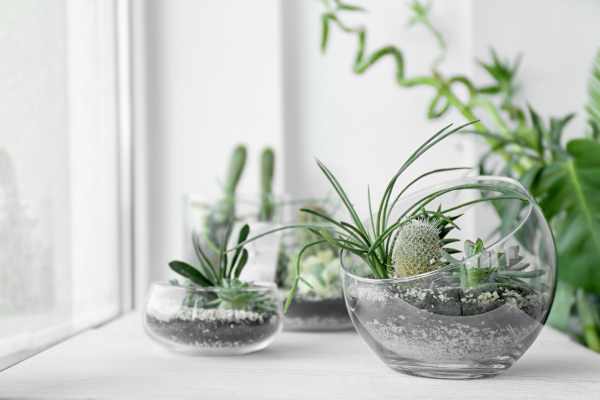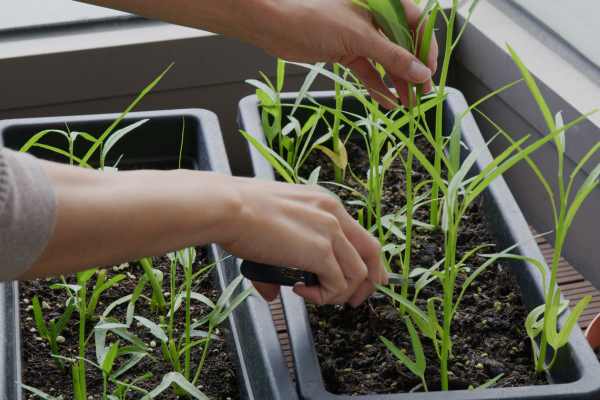The act of cultivating life and beauty through gardening in compact living spaces, even amidst the toughest climates, showcases human inventiveness and resilience.
Navigating through adverse weather conditions adds an extra layer of complexity to small-scale gardening, which already presents its own unique hurdles.
Nevertheless, with the right knowledge, skills, and determination, it’s feasible to cultivate a flourishing garden despite the adversities.
This article delves into the intricacies of gardening in limited spaces, particularly in harsh climates, and provides guidance on transforming your green aspirations into reality.
Exploring Potentially Difficult Climates:
Extreme temperatures, strong winds, heavy precipitation, or drought are among the factors associated with challenging climates.
These conditions impose significant challenges on gardening efforts, demanding meticulous planning and adaptation.
Selecting Resilient Plants:
When gardening in harsh climates, it’s crucial to choose plant varieties that have evolved to withstand specific environmental stresses.
Depending on the challenges posed by your local climate, opt for plant strains that exhibit resilience to temperature extremes, are drought-resistant, disease-resistant, or hardy.
Harnessing Microclimates in Small Gardens:
One advantage of small-scale gardening is the ability to create microclimates—localized areas with slightly different conditions compared to the rest of the garden.
Establish sheltered spots or provide shade to protect delicate plants from adverse environmental effects by utilizing structures like walls, fences, or other barriers.
Implementing Windbreaks and Protective Measures:
In windy regions, windbreaks play a vital role in safeguarding vulnerable plants from strong gusts.
Erect trellises, hedges, or similar structures to create protective barriers and mitigate the impact of high winds on your garden.
Enhancing Soil Quality for Harsh Climates:
Improving soil conditions is essential in areas where soil quality is poor. Incorporate organic matter, such as compost or manure, into the soil to enhance its structure, water retention, and nutrient availability.
Maintaining Consistent Temperature with Covers:
Mulching serves as an effective method for regulating soil temperature and moisture levels.
Apply mulch around plants to prevent soil overheating in warm climates and to insulate against freezing temperatures in colder regions.
Effective Water Management and Conservation:
Efficient water management is imperative in regions with limited water resources or frequent droughts.
Utilize drip irrigation systems to minimize water loss through evaporation, and collect rainwater for watering during cooler periods.
Extending Growing Seasons with Cold Frames and Greenhouses:
In extremely cold climates, consider using cold frames or greenhouses to extend the growing season.
These structures provide a controlled environment where plants can thrive despite frost and cold temperatures.
Exploring Indoor Gardening as an Alternative:
For individuals residing in regions with prolonged winters or harsh outdoor conditions, indoor gardening offers a viable alternative.
Utilize artificial lighting or sunny windowsills to cultivate fresh produce year-round, including herbs, microgreens, and vegetables.
Learning through Experimentation:
Gardening in challenging climates requires adaptability and a willingness to learn through trial and error.
Embrace experimentation, maintain a gardening journal, and adjust strategies based on the most successful practices in your specific environment.
Acknowledging Every Achievement:
In challenging environments, even the smallest gardening triumphs deserve recognition. Each thriving plant, nurtured through dedication and nature’s resilience, serves as a testament to perseverance.

Conclusion:
Successfully nurturing a garden in a compact home within a harsh climate necessitates a journey of exploration and perseverance.
Embrace the insights gained with each passing season and tailor your approach to address the unique challenges of your environment.
Your resilient garden not only withstands adverse conditions but also inspires others to discover beauty amidst difficulties.
Keep reading our articles:
Cultivating Herbs in Compact Areas
Crafting a Petite Garden Haven
FAQs:
Can I grow vegetables in extremely cold climates with short growing seasons?
Yes, it is possible to cultivate vegetables like kale, carrots, and onions in extremely cold climates.
Extend the growing season and protect plants from frost by utilizing a greenhouse or cold frame.
How can I protect my plants from heavy rainfall and flooding?
Raised beds and well-drained soil are effective measures to prevent waterlogging during heavy rainfall.
If flooding is a concern, consider employing container gardening or growing plants on elevated benches or in bins.
Can I grow tropical plants in harsh climates?
While challenging, it is feasible to grow tropical plants in harsh climates with proper care and attention.
Explore indoor gardening methods or create microclimates to simulate tropical conditions.
What are some low-maintenance plants for harsh climates?
Drought-tolerant plants such as succulents, native wildflowers, and ornamental grasses are excellent choices for low-maintenance gardening in harsh climates.
These resilient plants require minimal watering and can withstand adverse conditions.
Are there any specific pests or diseases to be aware of in this challenging climate?
Challenging climates may foster particular pests or diseases. Monitor your plants regularly and implement preventative measures such as using row covers or natural repellents to safeguard them against potential threats.


